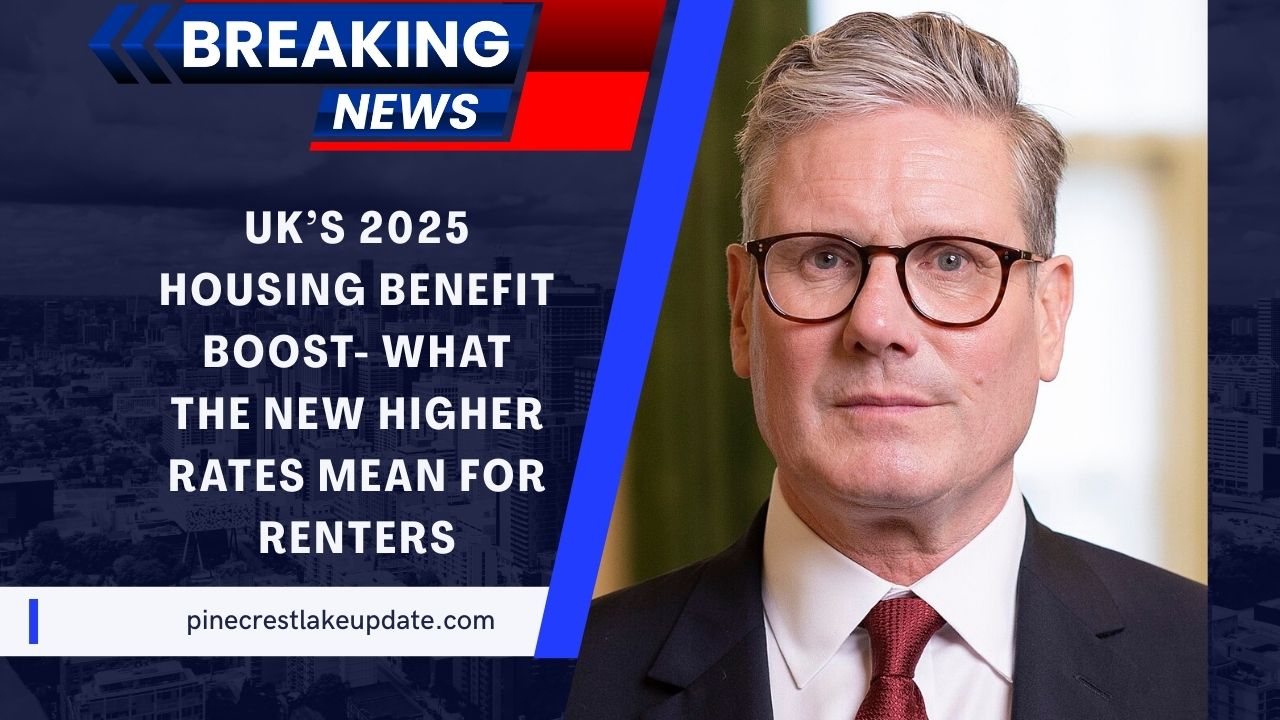In May 2025, the UK Government confirmed a major rise in housing benefit payments through updated Local Housing Allowance (LHA) rates, marking the first significant increase since 2020.
This move comes as part of a broader initiative to help low-income renters cope with rising rental prices, inflation, and overall cost-of-living pressures.
The increase is expected to benefit over 1.5 million households across England, Scotland, Wales, and Northern Ireland, especially single parents, pensioners, and those with disabilities.
New Housing Benefit Rates for 2025
The Local Housing Allowance (LHA) determines how much tenants in the private rental sector can receive in housing support.
The government has updated these figures in line with the rental market to make sure that more people can afford stable housing.
Here is a breakdown of the average monthly LHA limits by property size:
| Property Size | Average Monthly LHA (2025) |
|---|---|
| Shared Accommodation | £345 |
| 1 Bedroom | £550 |
| 2 Bedrooms | £740 |
| 3 Bedrooms | £925 |
| 4 Bedrooms | £1,120 |
These new rates reflect an 8–12% increase over the frozen rates last updated in 2020. The boost is aimed at bringing housing support more in line with real-world rental prices across the UK, especially in urban and high-demand regions.
Who Is Eligible for the New Rates?
The increased housing benefit applies to a wide demographic, including:
- Single-parent families
- Elderly pensioners
- People with disabilities
- Low-income working tenants
- Recipients of Universal Credit or legacy benefits
This support is especially critical in high-rent areas like London, Birmingham, Bristol, and Manchester, where rental costs have outpaced benefit caps in recent years.
Key groups expected to benefit most:
- Private renters in metropolitan regions
- Families with dependent children
- Vulnerable individuals facing housing insecurity
What About Discretionary Housing Payments (DHP)?
Alongside the LHA increase, local councils have been given enhanced power and funding to issue Discretionary Housing Payments (DHP).
These are short-term top-up payments meant to assist tenants who still face a gap between rent and benefits.
If you’re facing hardship or at risk of eviction, you can apply for a DHP directly through your local authority.
How and When Will Payments Be Made?
The implementation timeline for the new LHA rates is as follows:
- New Universal Credit claimants: Payments reflect new rates starting April 2025.
- Existing claimants: Automatic adjustment started in May 2025.
Important Notes:
- No reapplication is required.
- Check your updated payments via your Universal Credit account or consult your local council housing office.
- Those on legacy benefits (e.g., Income Support or Jobseeker’s Allowance) also qualify.
- If you haven’t updated your household circumstances in over a year, doing so is recommended to avoid incorrect payment amounts.
Government Goals Behind the Increase
The Department for Work and Pensions (DWP) explained that this increase is part of a broader effort to combat:
- Housing insecurity
- Rising homelessness
- Dependence on temporary accommodation
As of early 2025, more than 100,000 families live in temporary housing, an issue the government hopes to reduce significantly with this change.
Moreover, starting in 2025, the DWP has committed to reviewing LHA rates annually, ending the previous freeze approach and helping families plan better for the future.
Challenges and Criticism
While many advocacy groups have praised the move, some critics argue that even the new rates lag behind real rental prices in cities like London and Oxford. In these regions, the average rent continues to rise faster than the new caps.
However, the annual review policy could help close this gap in the coming years by allowing faster responses to market changes.
The UK’s 2025 housing benefit increase is a welcomed step toward alleviating financial stress for millions of renters.
With higher Local Housing Allowance rates, expanded discretionary support, and a new policy of annual reviews, the government aims to offer more consistent and realistic help for those struggling with housing affordability.
If you receive housing support, make sure to check your updated benefit statement and report any changes in your household situation to ensure your payments reflect the latest rates.
FAQs
Who is eligible for the 2025 housing benefit increase?
All low-income renters receiving Universal Credit or legacy benefits are eligible. Priority is given to families, disabled individuals, and pensioners.
Do I need to apply again to get the new LHA rates?
No, existing claimants will receive automatic updates. New applicants will receive the increased rates from April 2025.
Can I get extra support if my rent is still higher than my housing benefit?
Yes, you can apply for Discretionary Housing Payments through your local council for temporary top-up support.

